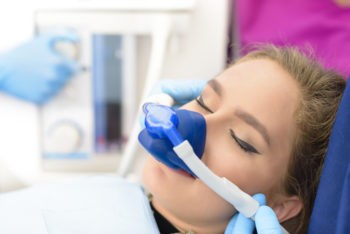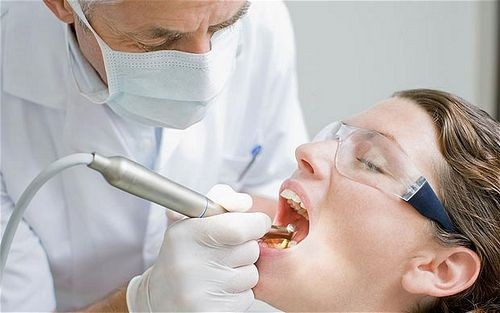
Optimally deduct dentist costs from the tax
Invoices that the dentist issues after treatment can be deducted from the tax under certain conditions. The amount will then be entered in the tax documents under the heading “Extraordinary charges”. Whether the costs are actually deductible depends on the fulfillment of some criteria, which include based on the amount of income, marital status and number of children.
Which dentist costs can be deducted from the tax?
Patients can deduct dentist costs from the tax and claim them as an extraordinary tax if they are not borne by the health insurance or by the dental insurance. For example, if you, as a legally insured person, decide against regular care, dentures are tax deductible. Then health insurance usually only covers a small part of the costs and the limit of unreasonableness can be reached quickly. If the treating dentist prescribes medication or prescribes certain therapies, the resulting costs can also be listed in the tax documents. Travel expenses are also tax deductible in this context and are set at 30 cents per kilometer.
The costs for the so-called reasonable burden are deducted from the invoice for professional tooth cleaning before the amount in the income tax return has an extraordinary impact. The amount of the reasonable burden depends on the respective living situation, the annual income, marital status and number of children.
What are extraordinary burdens?
Expenditures such as those for dental treatment or dentures are also considered to be extraordinary burdens. They can be claimed in the tax return if they were unavoidable and do not exceed an amount designated as "reasonable". If someone has greater expenses than most other taxpayers with similar incomes and assets and with the same marital status because of this necessity, then there are extraordinary burdens.
There is a flat-rate allowance for children living abroad in training and for people with disabilities. Whether taxes can ultimately be saved depends on whether the individually determined reasonable burden has been exceeded. In addition, factors such as income, marital status and number of children are examined in more detail. If the extraordinary burdens remain below the legally defined “reasonable burdens”, you cannot reduce your tax burden.
Reasonable amount as a percentage of total income
| With a total amount of income | up to € 15,340 | from € 15,340 to € 51,130 | over € 51,130 |
| 1. for taxpayers without children | |||
| a) Basic tariff / single | 5% | 6% | 7% |
| b) Splitting tariff / married | 4% | 5% | 6% |
| 2. with taxpayers with | |||
| a) one child or two children¹ | 2% | 3% | 4% |
| b) three or more children¹ | 1% | 1% | 2% |
¹ Children for whom you are entitled to a child allowance or child benefit.
Source: Section 33 Income Tax Act (as of April 11, 2017)
What can you do to exceed the load limit??
If a legally insured patient already knows that his health insurance company will not fully finance the planned dentures, he should claim the treatment costs against the tax in one and the same year if possible and not spread it over a period of two years. This is the only way to increase the probability that the reasonable exposure limit will be exceeded.
From what amount can dental expenses be deducted from the tax?
Insured persons can deduct dental costs from the tax if the expenses represent an unreasonable burden. This is measured on the basis of the percentage share of costs in the respective annual income. The following applies: the higher the annual income, the higher the limit for what is known as unacceptable. The number of children and family status also influence the calculation.
If the limit of unreasonableness was exceeded in the specific case, the part of the total amount of income that exceeds the level limit amount will be charged with the higher percentage. Then e.g. the percentage for the highest income group only exceeds the partial amount of income exceeding € 51,130. (see table above)
In the case of an unmarried taxpayer without children, the limit of unreasonableness is – depending on gross income – between 5 and 7 percent. In the case of one or two children, the limit of unreasonableness drops, also here in relation to dental costs and gross income. If there are three or more children, the limit is 1 to 2 percent. The total amount of income used includes salary, rent, rent and other income.
Single taxpayer without child
Annual income: 50,000 euros
The insured person has chosen a denture, at the cost of which he has to contribute 3,500 euros. Since this corresponds to 7 percent (3,500 / 50,000) of his annual income, the amount represents an unreasonable burden. As a result, the insured person can deduct the dentist’s costs from the tax and the dentures can be listed in the tax return.
Married taxpayer with three children
Annual income: 70,000 euros
The patient’s dentures have a share of 1,200 euros. The privately borne costs therefore correspond to a share of 1.7 percent (1,200 euros / 70,000 euros). The amount is reasonable and cannot be deducted from tax. Since the tax base remains unchanged, the costs for the dentures do not have to be mentioned in the tax documents.
You can also deduct private dental supplement insurance from tax?
As a rule, dental insurance is tax deductible. However, the individual case must always be considered, in particular whether the maximum amount to be recognized has already been exhausted by the social security contributions paid. However, the very specific advantages should be decisive for taking out supplementary insurance. Since statutory health insurance only pays 50 percent of the cost of regular dental care, insured persons should pay for private dental insurance. Thanks to it, patients can significantly reduce their own share of the dentist’s costs.
Where is the dental supplement insurance entered in the tax return??
If you fill out your tax return, you can claim the additional dental insurance fees as special expenses. To do this, enter the sum of the contributions paid under “Pension expenses” in the special expenses area. The investment pension expense is either available directly from the tax office or online. Statutory insured persons document their contributions to dental supplementary insurance in line 30. Privately insured persons enter their expenses in line 35. Customers usually receive confirmation of their paid contributions from the insurance company without being asked. For those insured by law, it should be noted that contributions to statutory health insurance are also special expenses. If high health insurance contributions have already been paid in one year, the additional contributions for dental insurance may not be fully taken into account.
Private dental supplementary insurance – when does it make any sense to state this in your tax return??
Insured persons can also assess without a tax advisor whether it is worthwhile to provide information on dental supplementary insurance with the tax. It is important to know that the contributions are deductible as special expenses. The following applies to employees: Special expenses of a maximum of 1,900 euros are credited per year. For self-employed people, there is a maximum of 2,800 euros per year. Anyone who has not yet reached the maximum limit for special expenses can claim the supplementary dental insurance contributions. Low-wage earners and the self-employed, as well as married couples, often benefit from this, as their upper limit doubles.
Dental insurance is also worthwhile without a tax benefit
If consumers opt for supplementary dental insurance, they are primarily concerned with comprehensive coverage in the event of a care case. Since the statutory health insurance companies only pay 50 percent of the cost of regular care for dentures, there is a high additional financial outlay for patients. To secure yourself in this case, it is worth taking out a high-performance supplementary insurance. With dental prostheses such as implants or bridges and also with orthodontic treatments, the additional payments from private insurance are often considerable.
Before taking out dental insurance, it is advisable to compare the products of different providers well. DFV-ZahnSchutz Exklusiv 100 offers particularly comprehensive reimbursement services. As a four-time test winner at Stiftung Warentest Finanztest (05/2019), the high-performance dental supplement insurance from Deutsche Familienversicherung received the absolute top grade VERY GOOD (0.5).
Related Posts
-

Doctor – dentist costs: all information and price comparison
Dentist costs The prices in comparison Save costs by comparing prices Dentist: cost Compare prices In Germany there are big differences in dental…
-

Nitrous oxide at the dentist »what are the costs?
What does the treatment with nitrous oxide cost at the dentist? Not only patients with a pronounced fear of dentists benefit from the advantages of…
-

Costs of dental treatment for children – cost of dentist – tips on dental costs
Cost of dental treatments for children Nowadays, every person insured by law knows that going to the dentist is not only uncomfortable for the patient,…
-

You can deduct these training costs from tax
You can deduct these training costs from the tax Whether it’s an apprenticeship, studies or training: learning a profession costs money. We show you how…
